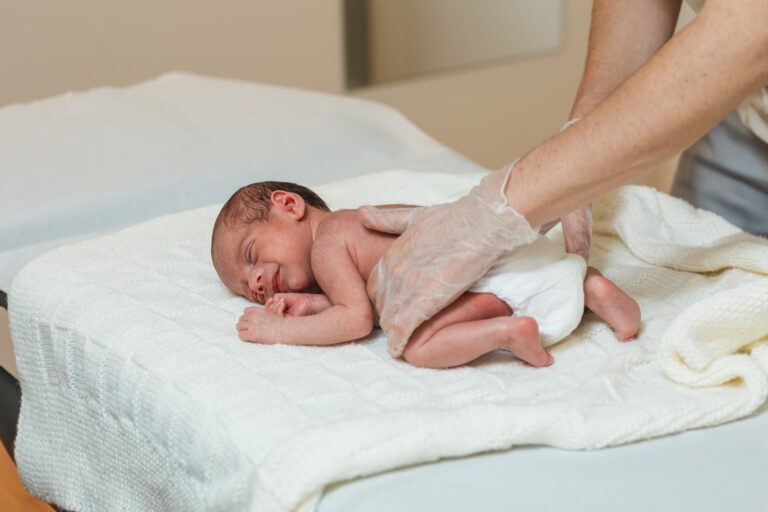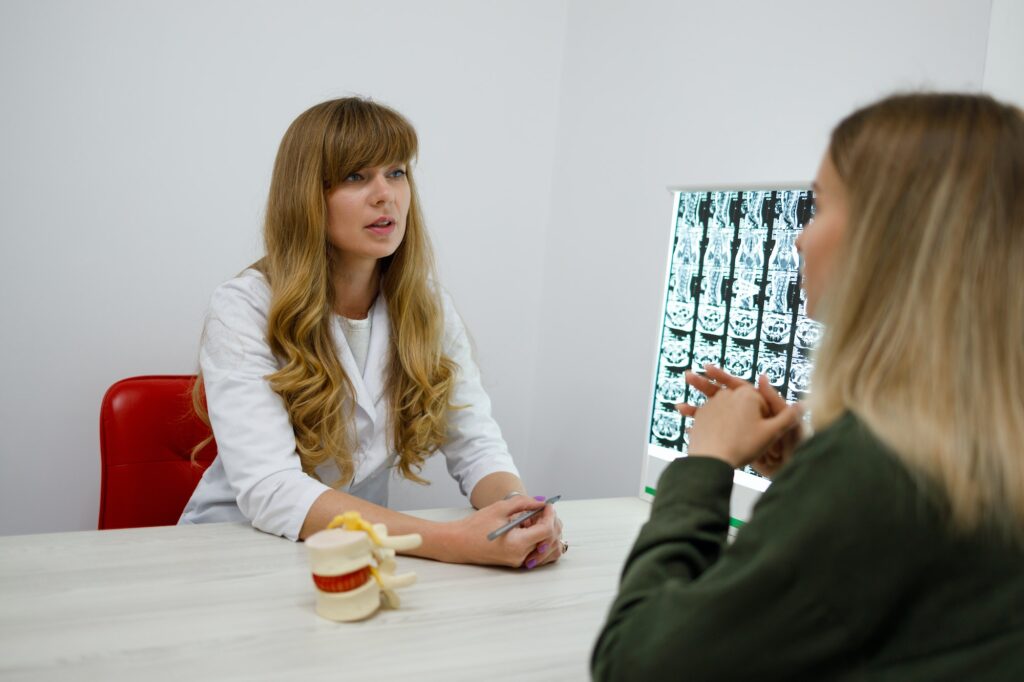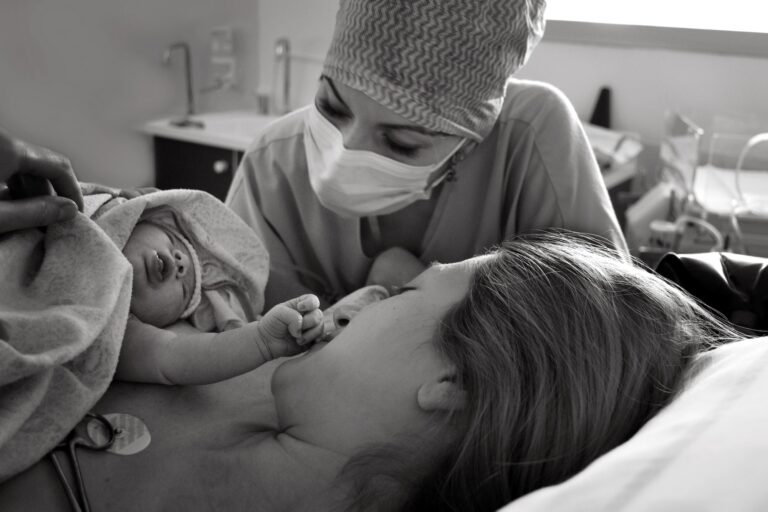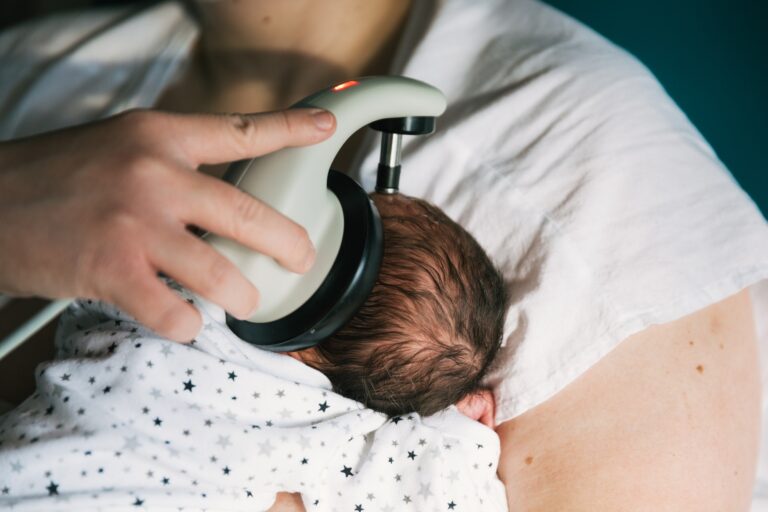
Understanding Patent Ductus Arteriosus: Causes, Symptoms, and Treatment Options
In the intricate realm of cardiovascular health, certain conditions demand our attention, and Patent Ductus Arteriosus (PDA) stands

Welcoming a new baby brings joy but can also be a challenging period for many mothers. A particularly under-discussed condition during this period is postpartum obsessive-compulsive disorder (OCD). Postpartum OCD is a serious mental health condition with intrusive thoughts and compulsive behaviors related to the baby’s safety.
Understanding and addressing postpartum OCD is vital. As a society, we often romanticize motherhood, glossing over the complex mental health struggles that can accompany this life-changing experience. Untreated postpartum OCD can disrupt maternal care, hinder bonding, and impact long-term mental health.
As a mental health professional, I’ve seen how support and treatment transform mothers with postpartum OCD. Explore the misunderstood condition of postpartum OCD, gain insights into its causes, and discover practical coping strategies to reclaim joy in motherhood.

Postpartum OCD, also known as postpartum obsessive-compulsive disorder, is a distinct form of anxiety disorder that affects some women after giving birth. This condition is characterized by intrusive, repetitive thoughts or obsessions that lead to compulsive behaviors aimed at reducing anxiety. Understanding the causes of postpartum OCD is crucial for effective diagnosis, treatment, and support for affected individuals.
One of the major contributors to the onset of postpartum OCD is the hormonal shift that occurs after childbirth. During pregnancy, levels of hormones such as estrogen and progesterone increase dramatically. Post-birth, hormone level drops can affect mood and contribute to perinatal mood disorders like postpartum OCD. Moreover, the hormone oxytocin, which facilitates childbirth and breastfeeding, is also implicated in obsessive-compulsive behavior. Therefore, the flux in these hormones may heighten susceptibility to OCD symptoms.
Research suggests that individuals can have a genetic predisposition to OCD, and this risk may extend to the postpartum variant as well. Studies examining families and twins have found that genetics can play a significant role in the susceptibility to OCD. If a mother has a close relative with OCD, her likelihood of experiencing postpartum OCD may increase.
A traumatic birth experience is another risk factor that may precipitate the onset of postpartum OCD. Experiencing trauma during childbirth can lead to intense feelings of fear, helplessness, or horror, potentially triggering anxiety disorders like OCD. This reaction can manifest as intrusive, distressing thoughts about harm coming to the baby, and compulsive behaviors intended to mitigate this perceived threat.
Postpartum stressors like lack of support, isolation, sleep deprivation, and breastfeeding challenges contribute to postpartum OCD. A lack of support and high-stress environment can increase a new mother’s vulnerability to developing OCD symptoms. Single-handedly managing a newborn’s needs under pressure can trigger anxiety and maladaptive obsessive-compulsive behaviors.
A personal history of OCD or other anxiety disorders is a strong predictor of postpartum OCD. Women with a history of OCD or anxiety disorders are at higher risk of symptom recurrence or intensification postpartum. This heightened risk is due to the considerable stress and change inherent to this period, which can exacerbate existing mental health vulnerabilities.

Postpartum OCD presents a range of symptoms that can significantly impact the daily lives of new mothers. These symptoms often involve distressing and unwanted thoughts, commonly known as obsessions, which lead to compulsive behaviors as a means of alleviating anxiety. Recognizing the symptoms of postpartum OCD is crucial for early intervention and providing appropriate support to women experiencing this condition during the postpartum period.
A key symptom of postpartum OCD is the occurrence of intrusive, repetitive thoughts or mental images. These thoughts often revolve around the safety and well-being of the baby and can be highly disturbing. They may involve worst-case scenarios, such as accidentally harming the baby, the baby falling ill, or fears of contamination that could harm the baby. Distinguishing from typical worries, intrusive and persistent thoughts cause distress to the mother, defying easy dismissal.
To cope with the anxiety generated by these intrusive thoughts, mothers with postpartum OCD often resort to compulsive behaviors or rituals. These behaviors are attempts to control or neutralize the perceived threat to the baby and can vary widely. They might include excessively checking on the baby, over-sanitizing bottles and baby-related items, or avoiding certain activities perceived as dangerous. Despite temporary relief, these rituals can become time-consuming and interfere with daily activities and the mother’s ability to care for her baby.
A particularly distressing symptom of postpartum OCD is the fear of intentionally causing harm to the baby or oneself. It’s important to note that having these thoughts does not mean the mother will act on them. They are unwanted, intrusive thoughts that generate high levels of anxiety. Mothers strive to ensure baby safety, reinforcing the OCD cycle driven by fears. This symptom can lead to guilt and shame, making it challenging for mothers to seek help.
At the core of postpartum OCD is anxiety and distress. The intrusive thoughts, compulsive behaviors, and fears all contribute to a high level of anxiety. Mothers may feel constantly on edge, scared, or worried. This distress can permeate all aspects of their life, affecting their ability to sleep, eat, and take care of themselves and their baby. Furthermore, the guilt and fear associated with their thoughts and behaviors can lead to feelings of depression, further intensifying the overall distress experienced.
Finding effective coping strategies is essential for individuals experiencing postpartum OCD to manage their symptoms and improve their overall well-being. These strategies empower women to navigate challenges and regain control over thoughts and behaviors. By implementing tailored coping strategies, individuals with postpartum OCD can find relief, enhance their quality of life, and promote their recovery journey.

If you suspect you’re dealing with postpartum OCD, seeking professional help is crucial. This typically involves a combination of psychotherapy and medication. Cognitive-behavioral therapy (CBT) has proven to be particularly effective in treating OCD. CBT helps to identify, challenge, and change the intrusive thoughts and compulsive behaviors associated with the disorder. Additionally, certain medications such as selective serotonin reuptake inhibitors (SSRIs) can be useful in managing OCD symptoms. It’s important to discuss any concerns about breastfeeding and medication use with your healthcare provider.
Connecting with others who are going through similar experiences can be incredibly beneficial. Support groups and online forums offer a safe, non-judgmental space where mothers can share their experiences, challenges, and coping strategies. The feeling of being understood and the realization that you’re not alone in your struggle can provide tremendous emotional relief.
Self-care is key in managing postpartum OCD. Regular physical activity, a balanced diet, and adequate sleep can significantly improve mental health. Additionally, stress management techniques such as mindfulness, meditation, yoga, or deep-breathing exercises can help reduce anxiety and intrusive thoughts. Mothers must prioritize self-care and enjoyable activities to aid in their recovery.
The saying “it takes a village to raise a child” holds particularly true for mothers battling postpartum OCD. Involving partners, family members, and friends in the caregiving process can help alleviate some of the stress and anxiety. Open communication on postpartum OCD fosters understanding and loved ones can provide practical support in baby care, companionship, and house chores.
Knowledge is power. Understanding postpartum OCD—its causes, symptoms, and treatment options—can go a long way in managing the condition. Learning about the disorder can help mothers recognize and challenge their intrusive thoughts and compulsive behaviors, making it easier to interrupt the OCD cycle. Furthermore, educating family members and friends about postpartum OCD can challenge stigma, encourage supportive responses, and promote awareness about this important mental health issue.
Postpartum OCD, a condition often overshadowed by the joy of welcoming a new life, can present unique challenges for new mothers. Factors like hormonal imbalances, genetics, traumatic birth, lack of support, or previous OCD/anxiety contribute to this disorder’s onset. Its symptoms, including intrusive thoughts, compulsive behaviors, fears of harm, and heightened anxiety, can be distressing and disruptive. Coping strategies for postpartum OCD include seeking professional help, joining support groups, practicing self-care, involving loved ones, and gaining knowledge about the condition.
You’re not alone in postpartum OCD; seeking help shows strength and love for your child. There are countless other mothers who have walked this path and have come out stronger on the other side. Seek mental health professionals and find support networks for comfort and understanding on your journey.
The journey through postpartum OCD may seem challenging and at times overwhelming, but recovery is not just possible, it’s probable. With the right treatment and support, the distressing thoughts and compulsions can lessen, and the joy of motherhood can reclaim its rightful place. As we understand more about postpartum OCD, we’re better equipped to combat the stigma, extend compassion, and offer effective help to those affected. Experiencing postpartum OCD doesn’t make you a bad mother; it makes you brave for facing this challenge. Remember, there is help, there is hope, and you are not alone.

In the intricate realm of cardiovascular health, certain conditions demand our attention, and Patent Ductus Arteriosus (PDA) stands

Guidance for Healthy Baby’s Growth Charting a birth plan is like GPS for natural childbirth—a guide for a
Pregnancy, often considered a period of joy and anticipation, can sometimes be fraught with complications. One such condition

Each parent envisions a healthy future for their child, including auditory well-being. Early identification of hearing impairments through